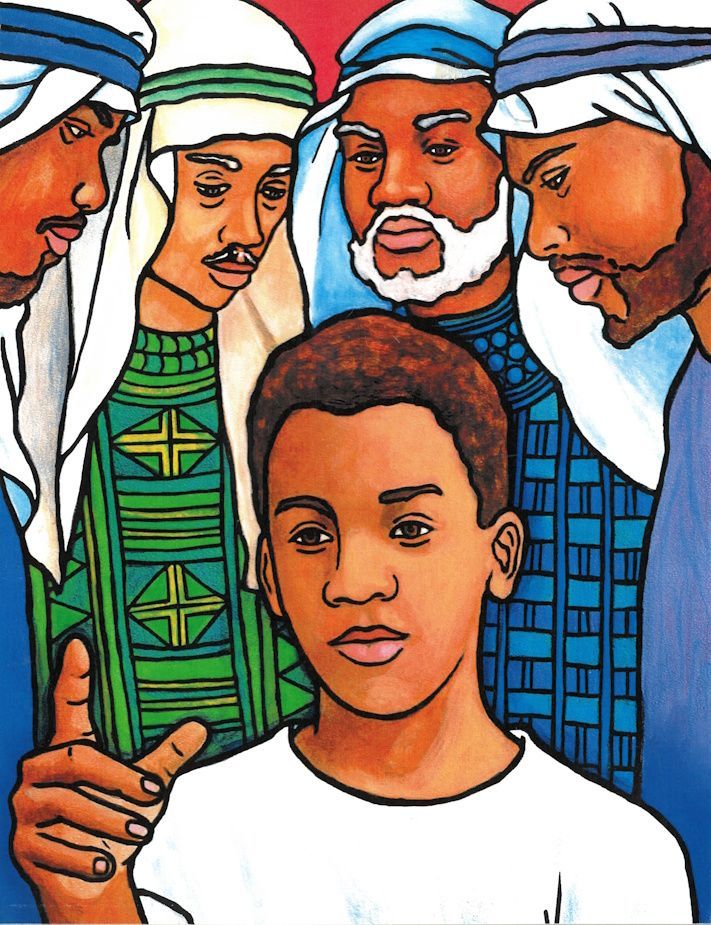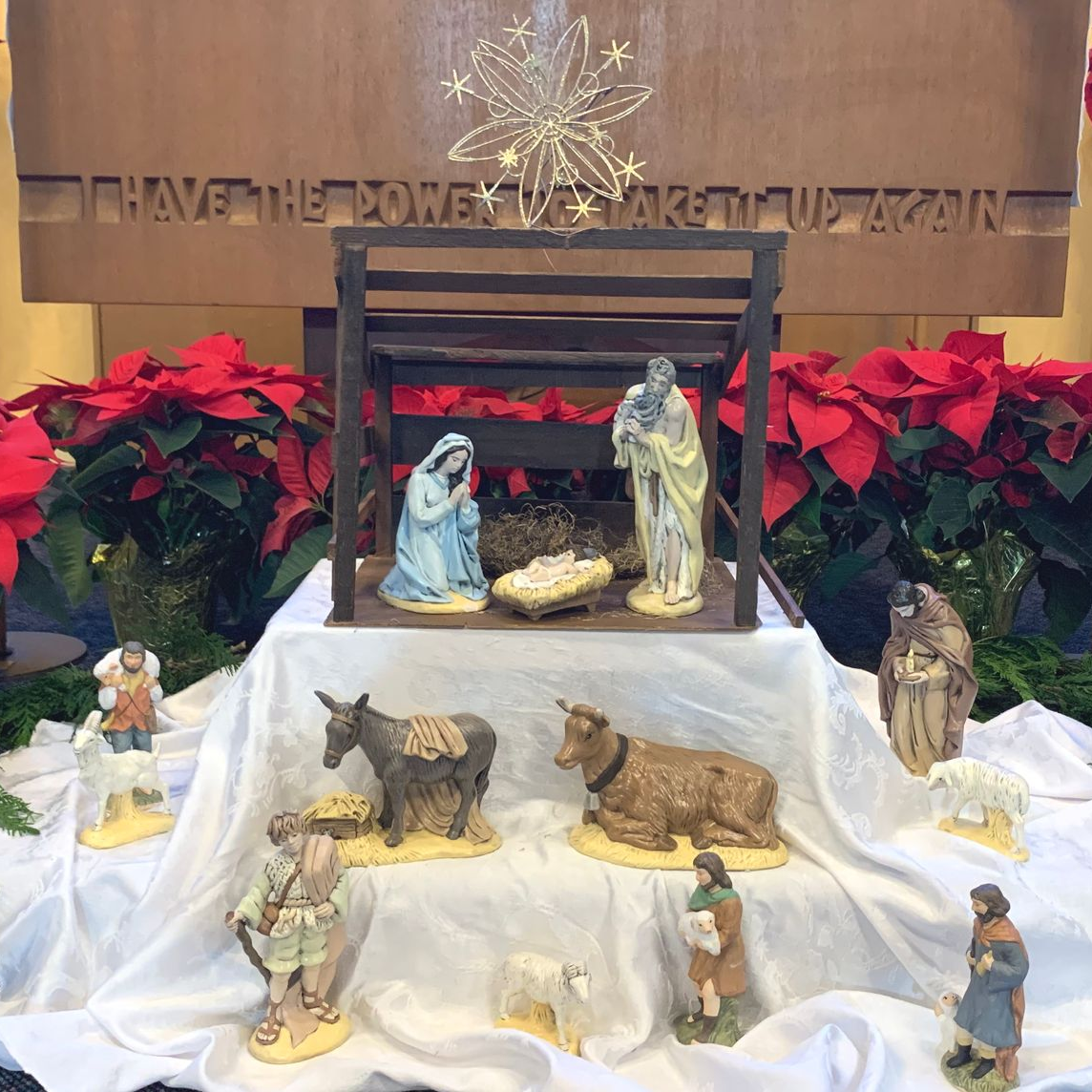The Good News Is Healing
This is a subtitle for your new post
2025-51
sermon preached at Church of the Good Shepherd, Federal Way, WA
www.goodshepherdfw.org
by the Rev. Josh Hosler, Rector
The Eighteenth Sunday after Pentecost (Proper 23C-Tr1), October 12, 2025
Jeremiah 29:1, 4-7 ; Psalm 66:1-11 ; 2 Timothy 2:8-15 ; Luke 17:11-19
What is the Good News?
I mean, this is what Christianity is supposed to be all about, right? Sharing Good News. But what is that Good News? I could give you a formulaic, theologically informed answer, but honestly, it can be expressed in far more relatable ways. Here’s one version of the Good News I once came across:
“The Good News is one beggar telling another where the bread is.”
We could rephrase this version of the Good News in several ways to match each of our readings from Scripture today:
“The Good News is the hope that rises in the midst of despair.”
“The Good News is the life that bursts through the brutality of death.”
“The Good News is the healing that leads to gratitude.”
Based on these expressions of Good News, we can also deduce what the Good News is not:
“The Good News is NOT that if we’re really, really good, we get to go to heaven.”
“The Good News is NOT that if we keep focused on Jesus, we’ll never experience hardship or suffering.”
“The Good News is NOT that it’s more important to be dedicated to God than to be dedicated to other people.”
Yet all of these are ways that I constantly see Christians trying to be.
Last Monday night we began a four-part Zoom series called “What Even IS Christianity?” The idea for this came from one person without much experience of the church asking me whether we could just start from the beginning. So on Monday night we began by gathering stereotypes of Christianity. Let me share with you a few that our group identified:
“Christians focus on the afterlife instead of this life.”
Does that sound like Good News? I don’t think so. If the whole point of life is to escape it for something better, why did God do such a lousy job creating a world for us in the first place?
Here’s another one: “My infirmities should be inversely proportional to my faith.”
That one’s a little heady, but I think I get it. The stereotype is that if I have enough faith, my life will go well. If I lack for faith, I will suffer more. Does that sound like Good News?
Here’s one more: “All Christians believe the same thing. If you don’t believe the same thing, you’re wrong and you’re going to hell.”
Ouch. So much for “They’ll know we are Christians by our love.”
The people gathered in the Zoom room were able to rattle off these stereotypes very quickly. Such is the way people imagine us. We know it to be true.
We see it all around us in our nation today. Observe our president’s recent, rather bizarre, and certainly telling pronouncements about hoping he can be good enough to get into heaven. Or those who are eager to punish millions of people they perceive, rightly or wrongly, to be living outside of a rigid understanding of the law—while ignoring those in power who routinely break it. Or the Christian nationalists like Russell Vought, Stephen Miller and Pete Hegseth—you know, the people who actually run our country now—declaring that if you’re not Christian enough, in the ways they define it, you are a domestic terrorist and will be dealt with accordingly.
I’m just barely scratching the surface of the horrors we’re now witnessing. I pray that we the people will not put up with this nonsense for much longer. Yet I also believe—because of the actual Good News—that it’s folly to try to go back to some golden era of the way things used to be. Let’s look a little more deeply about why I believe that.
Over the past few weeks, we’ve been following the saga of the Babylonian invasion of Judah, as reported by the Prophet Jeremiah. As the people suffer in sorrow, the prophet gives them perhaps his most unwelcome message of all:
There’s no quick fix for this.
“Like it or not,” Jeremiah is saying, “you are now Babylonians. Welcome your new overlords. Then live your lives as you would have otherwise. Don’t listen to the false prophets with their sunnier forecast; I give our situation 70 years! Maybe your kids will get to see their homeland someday. Maybe your grandkids. In the meantime, pray for the Babylonians to be able to maintain a stable society, because now it is your society.”
Wow! What a traitor, huh? Where’s Jeremiah’s patriotism? But Jeremiah knows that it’s now too late to get out of this. If the people keep nursing grudges, it will only lead to more bloodshed. Remember last week when we sang Psalm 137, about wishing our enemies’ babies would be dashed against rocks? Jeremiah’s call is a rebuke to all of our revenge fantasies. I daresay it’s even a preview of Jesus’ call to love our enemies.
“For surely I know the plans I have for you, says the Lord, plans for your welfare and not for harm, to give you a future with hope.” When people say, “God has a plan for me,” more often than not they don’t know the context. This is the context! It’s not a promise to individuals, but to the Chosen People of God. Whatever happens to us, God can work with it. And there’s no point saying, “Well, at least you’ll get to go to heaven.” In Jeremiah’s time, the idea of heaven hadn’t yet developed.
So next time you hear someone say, “God has a plan for your life,” remember this context. It necessarily involves walking as a people through the valley of the shadow of death—which is exactly where so many find themselves today. Promising a quick fix is false prophecy. You don’t have to be a Christian to hear the Good News that the true prophets preached: “The Good News is the hope that rises in the midst of despair.”
Next, in the Second Letter to Timothy, we hear: “If we have died with him, we will also live with him.” Yes, but that does mean dying! “If we deny him, he will also deny us”—oof, that doesn’t sound like Good News. When we deny the force of love that Jesus represents, choosing instead to scorn and to punish, Jesus may rightly look at us and say, “I no longer see myself in you.”
But then comes the kicker: “If we are faithless, he remains faithful.” Even when we hide ourselves away from Jesus, the relationship is never broken. Don’t wrangle over the words. Don’t insist first on being set free of whatever chains you. Just show up to the work of loving that you find to be at hand. Why?
Because “the Good News is the life that bursts through the brutality of death.”
When we love, the chains fall away. That is very Good News.
Finally, we come to the story of Jesus healing ten lepers. Notice what’s happening here. Ten men with leprosy stand at a distance and cry out to Jesus for mercy. Jesus does show them mercy: he says, “Go show yourselves to the priests.”
Now, going to the priests was standard procedure. The priests were the ones who certified that a disease had abated, which meant that these men could be fully restored to life in their communities. The ten lepers head toward the priests and, on the way, find themselves healed. But only one of the ten turns around, goes back to Jesus, falls at his feet, and thanks him. And, whaddaya know?, he’s the only one of the ten who is a Samaritan.
Anna preached about Samaritans back in July when we heard the parable of the Good Samaritan. But a quick review is always helpful. The Samaritans were an ethnic group closely related to the Jews, but not closely enough. The two groups were hostile to one another for a variety of reasons.
At first, the presenting problem is that these ten men have leprosy. Well, Jesus works a quick fix on that. But one of the ten former lepers is still … a Samaritan. Why would a Samaritan go the priests? They’re not his priests. You might as well ask a Wiccan to step into a confessional booth, or a Jew to renew her baptismal covenant, or a Christian to go on an aboriginal walkabout. It’s inappropriate. It’s a category error.
So where does this Samaritan go when he finds himself healed? Straight back to the one who healed him, of course. Because Jesus is the only refuge he now knows.
“The Good News is the healing that leads to gratitude.” Recently I got stuck in a loop thinking about the various things at Good Shepherd that aren’t going smoothly—at 3:00 a.m., of course. And then I realized there was no point to this. Do I expect everything to go well all the time? Every community faces challenges. But we are also blessed with many joys to celebrate.
Remember the formulation of the Good News that I began with: “The Good News is one beggar telling another where the bread is.” Today, Jesus shows us the stance we need to take in relation to him. We are to approach him like lepers in need of healing—and then to give thanks to God for whatever is good in our lives.
This may sound undignified, but only to those who expect never to have to suffer. Those who have been through the wringer know what it’s like to stumble upon an unexpected spot of relief. When this happens—as with this tenth leper—we have a choice. We can go on our way saying, “Well, it’s about time I was healed! It’s no less than I deserve.”
Or we can stop, turn around, and say, “Thank you, thank you, thank you. I needed this so badly!”
Better yet, every occasion of healing is an opportunity to notice that lots of other people are also in need of healing. Because to love others is to love God. When we fail to love others, we fail to love God. But when we ourselves have known failure, loss, weakness … then we can understand. We are to come near to Jesus not like self-confident winners, but like the losers we actually are. Then we can give thanks to God for whatever good may happen in our lives.
Here, then, is the Church of the Good Shepherd, a community for you to plant yourself in and grow. Every week we lay a feast here and invite all those present to share in it. We don’t ask you to change who you are. We’re all going to keep changing anyway, all the time. The church doesn’t need to manage your change for you. The church is here to help you encounter Jesus the healer in as many ways as possible.
So if you’re living in exile today, know this: God is in your desolation. God is in your suffering. God is in your healing. And sometimes the most effective healing looks like gratitude. God is in our thanksgiving, which is what we observe every week at this table. Come share in the feast.











